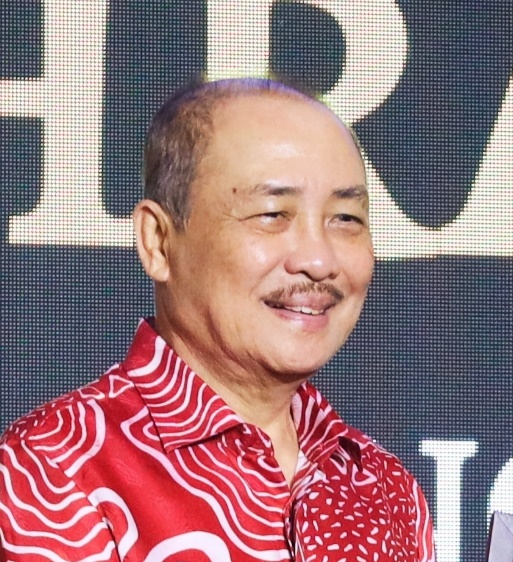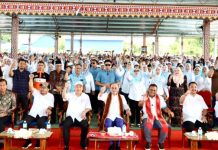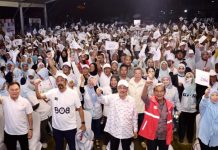KOTA KINABALU: Chief Minister Datuk Seri Panglima Haji Hajiji Haji Noor said the State
Government is focused on ramping up digitalisation efforts to maximise the potential of the
digital economy.
“We are leveraging technology and innovation to boost productivity and growth,” he said.
Speaking at the Sabah Chinese Economic Conference here today, the Chief Minister said
undoubtedly, with the advent of technology, businesses across all industries are leveraging
advanced technologies, including artificial intelligence (AI).
“Digital experience makes all the difference, and businesses which do not invest in such to
stay relevant and competitive will fail. In Malaysia, the digital economy is expected to
contribute 22.6 per cent of the nation’s gross domestic product (GDP), with the government aiming to create half a million jobs in the digital sphere by 2025,” he said.
Finance Minister Datuk Seri Panglima Masidi Manjun delivered his speech.
“I understand this conference will aim at enhancing Sabah’s economic competitiveness
using new technology. Your embarking on Artificial Intelligence and drones as new tools of
our economic development deserves support,” he said.
Hajiji said in June this year, the Sabah government, through the Sabah Economic
Development and Investment Authority (SEDIA), had organised a Drone Seminar where
many saw it necessary to explore drones’ potential on how they could revolutionise the
state’s economy.
“To be competitive, We need to be more creative and proactive by taking full advantage of
digital technologies and the use of virtual reality, among others,” he said.
Hajiji said the State Government would also focus on empowering human capital to be
competent, innovative, resilient, and having integrity.
He said Initiatives to implement include organising Technical and Vocational Education
Training (TVET), courses in line with the Industrial Revolution 4.0 and the expansion of the
Internet of Things (IoT).
“Collaboration with industry on skills training needs to be improved to enhance the capacity
and marketability of our human capital,” he said.
“Sabah’s five-year Hala Tuju Sabah Maju Jaya (SMJ) Development Plan, which we
launched in 2021, has largely borne fruit. It is our strategic roadmap and blueprint to set the direction for the state’s development, effectively outlining our vision, strategy and priorities,” he said.
Hajiji said there are many opportunities both domestic and foreign investors can leverage
on the multiple development sectors in Sabah.
“We have several key industrial zones. There are two free economic zones, namely the
Integrated Logistics Services in Kota Kinabalu Industrial Park (KKIP) and the Transhipment
Hub in Sepanggar.
“There is also the Sabah Oil & Gas Terminal in Papar and the Sipitang Oil & Gas Industrial
Park. In addition, there is the Palm Oil Industrial Cluster (POIC) in Lahad Datu.
“Two more industrial parks will be constructed in Kimanis and a location between Kota Belud and Kota Marudu to provide opportunities for investments,” he said.
He said opportunities also abound in the two other thrust sectors: agriculture and tourism.
The tourism sector has seen a robust performance of late following the opening of borders
post-pandemic, which has brought about a positive impact, registering a 77.1 per cent
increase in arrivals from January to May this year compared to the corresponding period last year, he said.
“We expect 2.2 million visitors to Sabah by year end, which is expected to generate RM4
billion in tourism receipts for the state,” he said.
“Located in the heart of the Brunei Darussalam–Indonesia–Malaysia–Philippines East ASEAN Growth Area (BIMP-EAGA), Sabah is a land of endless potential,” he said.
“I see Sabah as a potential regional hub for manufacturing, maritime and transportation for
emerging and developed countries,” he said, adding that the relocation of the Indonesian
capital, Jakarta, to East Kalimantan bodes well for Sabah.
“This will strengthen our position and spur economic activities. Investors, domestic and
foreign, will have access to this subregion with a market of over 70 million people and
growing,” he said.
He admitted that Sabah has its share of challenges and constraints, but he assured that
they are not insurmountable.
“We are determined to push forward to realise the goals set out in our development agenda,” he said.-pr/BNN






